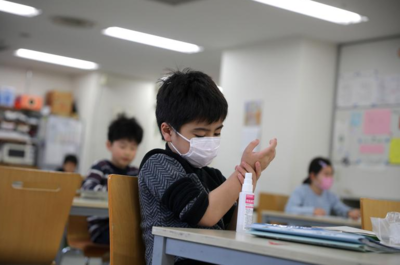- News
- Business News
- India Business News
- Covid hits savings for kids’ education
Trending
This story is from January 20, 2021
Covid hits savings for kids’ education
The pandemic has caused major change of priorities for urban Indians as far as their savings are concerned. People are saving less for marriages, kids’ education or for small luxuries like cars and vacations. They are setting aside more for retirement, health and untimely death of the breadwinner.

(Representative image)
MUMBAI: The pandemic has caused major change of priorities for urban Indians as far as their savings are concerned. People are saving less for marriages, kids’ education or for small luxuries like cars and vacations. They are setting aside more for retirement, health and untimely death of the breadwinner.
According to an annual survey conducted by Max Life, the awareness and actual purchase of insurance by households has jumped during the last one year.But there is a general feeling of being less secure than before, thanks to the fallout of the pandemic.
“The overall protection quotient has gone up as Indians are more aware of insurance protection. Life insurance ownership has gone up 5 percentage points to 71% (among respondents), but the percentage of respondents feeling secure has come down from 60% to 57%,” said Max Life Insurance CEO Prashant Tripathy.

The survey brought out that insecurity is higher among millennials as compared to non-millennials. According to Tripathy, this was because they were not as settled in their careers as older people. Besides buying more term insurance than last year, the number of respondents having a critical illness cover doubled too.
One of the key findings of the survey is that the self-employed have for the first time overtaken salaried in ownership of term insurance. As against last year when 28% salaried and 26% self-employed owned health covers, this year the ratio was 24% and 31% respectively.
Going by geography, North India recorded the highest drop in level of feeling of security. As against 68% respondents who felt secure last year, this year it was only 61%. The West actually saw the feeling of security marginally improve from 53% to 54%.
According to an annual survey conducted by Max Life, the awareness and actual purchase of insurance by households has jumped during the last one year.But there is a general feeling of being less secure than before, thanks to the fallout of the pandemic.
“The overall protection quotient has gone up as Indians are more aware of insurance protection. Life insurance ownership has gone up 5 percentage points to 71% (among respondents), but the percentage of respondents feeling secure has come down from 60% to 57%,” said Max Life Insurance CEO Prashant Tripathy.

He added that this lower level of security was after a vaccine being available, but was understandable given the pain and hardship caused by the pandemic.
The survey brought out that insecurity is higher among millennials as compared to non-millennials. According to Tripathy, this was because they were not as settled in their careers as older people. Besides buying more term insurance than last year, the number of respondents having a critical illness cover doubled too.
One of the key findings of the survey is that the self-employed have for the first time overtaken salaried in ownership of term insurance. As against last year when 28% salaried and 26% self-employed owned health covers, this year the ratio was 24% and 31% respectively.
Going by geography, North India recorded the highest drop in level of feeling of security. As against 68% respondents who felt secure last year, this year it was only 61%. The West actually saw the feeling of security marginally improve from 53% to 54%.
End of Article
FOLLOW US ON SOCIAL MEDIA















